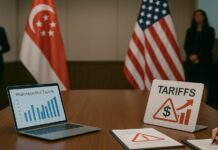Sanofi’s Dupixent is still breaking new ground in inflammatory illnesses five years after receiving FDA approval for the first time in eczema. Bill Sibold, Sanofi’s global head of speciality care, believes this since the Regeneron-partnered drug’s first-quarter sales increased 46 percent to 1.61 billion euros ($1.79 billion), above industry estimates.
During an investor call, Sibold remarked that they are still only at the outset of their journey, with roughly 8% [Dupixent] marketshare in adults with atopic dermatitis. Dupixent’s sales gain of 46 percent in constant currency is the most for a first quarter in the industry so far. Outside of the United States, sales increased by 69 percent. And the drug’s 38 percent increase in the United States is even more impressive, according to Sibold, because only around 90% of doctors’ offices have resumed since the pandemic began.
There may be some downward pressure on Dupixent’s net pricing in the United States due to competition, but there really is nothing out of the ordinary here, according to Sibold. Dupixent’s peak sales target was recently boosted by Sanofi to a minimum of 13 billion euros. According to Sibold, well over 430,000 patients are now using the IL-4/13 inhibitor for inflammatory diseases, and the French pharma plans to add at least 1.5 million more eligible participants by 2025 with fresh label expansions.
In that regard, the FDA recently prioritised Dupixent’s application for eosinophilic esophagitis, eventually making it the first approved treatment for the condition. Sanofi and Regeneron also registered the medicine with US and European regulators for the itch disorder prurigo nodularis. Meanwhile, new entrants are flooding the market. In December, Leo Pharma received FDA approval for Adbry, an IL-13-specific injectable for people having moderate to severe atopic dermatitis. Eli Lilly just released “convincing” phase 3 data for its own IL-13 antibody, lebrikizumab, with skin recovery on par with or better than Dupixent in raw numbers, according to Jefferies analysts. Oral JAK inhibitors, including AbbVie’s Rinvoq and Pfizer’s Cibinqo, are posing a less direct threat to Dupixent. Sanofi, on the other hand, appears unfazed.
They believe that by expanding the market and increasing physician and patient awareness, they will be able to unleash substantial beneficial growth potential for Dupixent, Sibold added. They have seen that all over the world, where rivals enter the market and help to drive growth, he added.


















